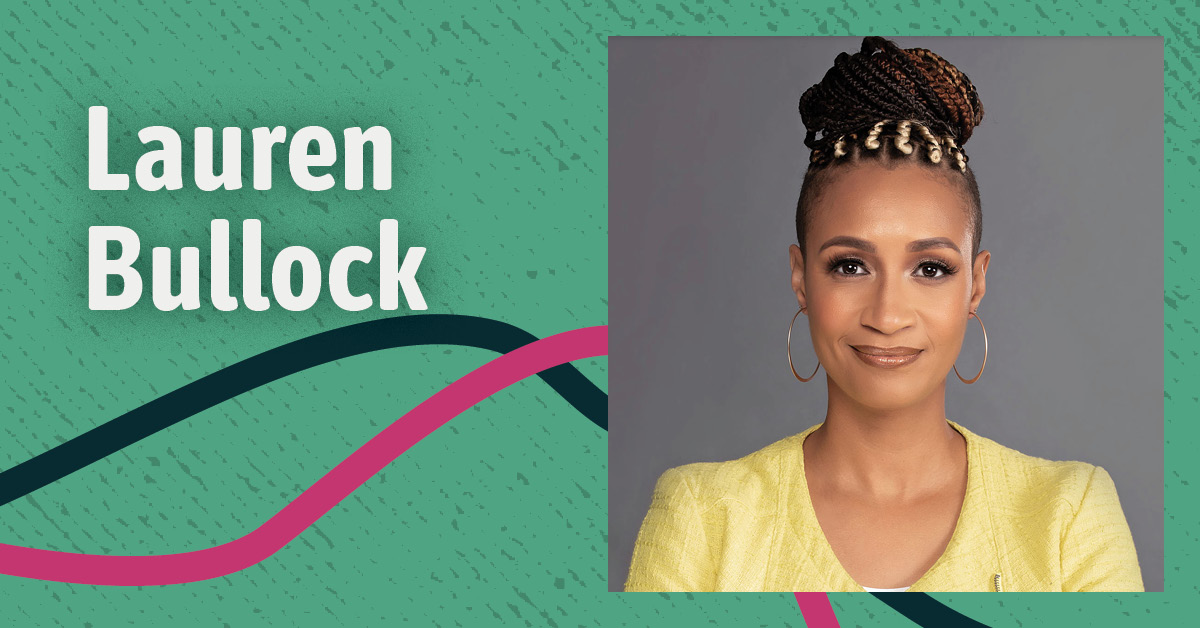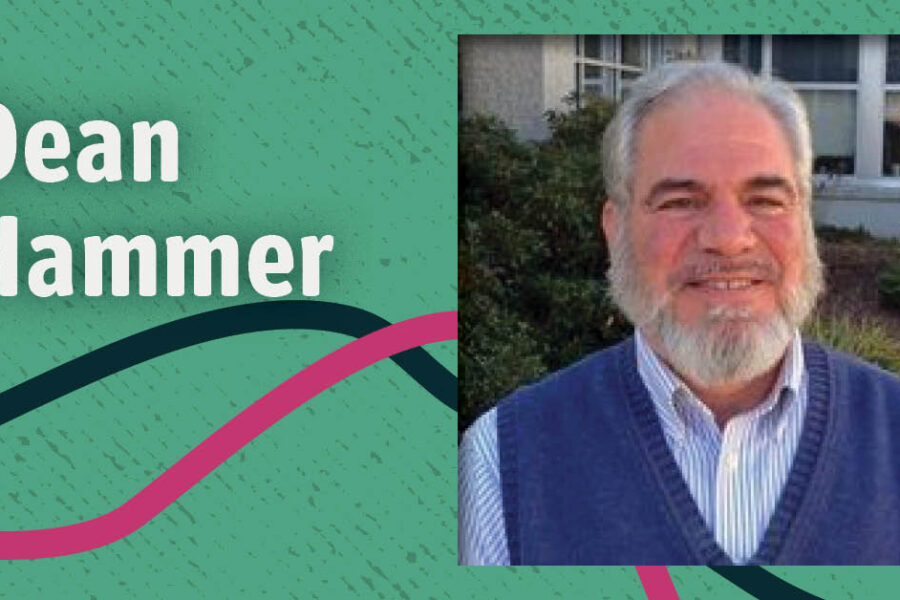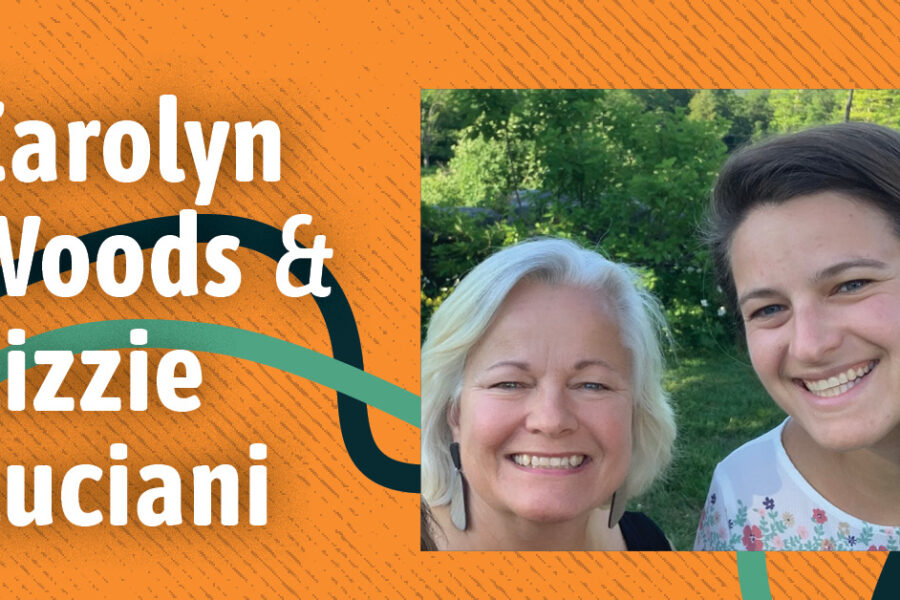“What’s happening now makes us as leadership educators even more accountable,” says Lauren Bullock, a professor and podcast host, as she describes the pressures that she and others who teach leadership feel in a time of protest and increased focus on racial discrimination. As she says, “People want to know if their leaders are doing what they feel is morally right.”
The Leadership Educator Podcast, which she co-hosts with Dr. Dan Jenkins, a long-time friend and fellow leadership educator, just released its 171st episode, and over the last two years it has focused over many interviews on the impacts of the pandemic and the place of leadership education in addressing social failings in the US. Bullock has been co-producing the podcast, while also studying for a PhD at the Antioch Graduate School of Leadership and Change and working as an Assistant Professor for Instruction at Temple University. All of this work comes out of her passion for leadership education and development.
“I love leadership,” says Bullock. “I love showing people they can be leaders.” In the podcast, Bullock and Jenkins are able to explore a wide range of leadership concepts, including the moral necessity for leaders to engage with power and justice to create change. They regularly have on guests from all over the country, and the world. A recent episode, for example, is a discussion of studying leadership in Pakistan with Wajeeha Ghias.
In her work as a teacher, Bullock puts these concepts into practice. With her students, she says, “I’m getting them to think about leadership’s application in their life. I tell them: ‘You are a leader, whether you accept it or not, because there’s always someone that you’re influencing.’”
A Passion for Athletics and Student Leadership
Bullock grew up in New Jersey, where she was an avid fan of the basketball team the New Jersey Nets (which have since moved to Brooklyn). She remembers, “I wanted to work for the team, but I couldn’t play basketball.” When she went to college—Temple University, in Philadelphia—she was a Marketing major. But during her studies, she went to a sports conference and met women who owned their own sports marketing agencies. She says, “I was hooked into the sports world.” When she graduated from Temple University’s School of Tourism and Hospitality Management, she got a job in Sports Information and completed her master’s degree in athletics administration from the College of Education at Florida State.
Bullock loved college athletics. “I could connect with student-athletes,” she says. “I could help tell their stories. I love using statistics to talk about people’s performances.” At Florida State, she served as the primary sports information contact for the 2006 NCAA Division I National Champion men’s track and field team. She then found a new position at the University of Texas at Austin, where she worked as Assistant Media Relations Director. She loved the role, but when she met the man she would marry, she began rethinking the lifestyle of being an athletic administrator. “I’d been working seven days a week, 8 a.m. to 8 p.m., without thinking twice,” she explains. Now that began to change. “I knew that I wouldn’t be able to have the quality of career that I wanted in athletics, and be a wife and mother.” In 2008, after consulting with a mentor, she moved back to New Jersey to be closer to her partner Robert, who is now her husband.
For work, she ended up returning to Temple University Ambler as a Coordinator of Student Life. Bullock’s work in athletics—in which she employed communication and marketing to transmit individual narratives—ended up forming a conceptual grounding for her work in leadership. As a Coordinator of Student Life at Temple, she immediately excelled at the position, and her grounding in leadership expanded. As she says, “I got a great experience of everything in student affairs. From that, I found that I loved organizing leadership conferences and workshops.” In 2012 she moved to Temple’s Main Campus to run the university’s leadership programming as the Program Director of the Office of Student Leadership.
As she tried to grow this passion for leadership, she enrolled in 2016 in Antioch’s PhD in Leadership and Change. And two years later, in 2018, she merged her professional background of leadership and public relations as an Assistant Professor of Instruction at Temple.
The Podcast and a Community of Leaders
Becoming a professor of leadership helped Bullock clarify her mission in her work. “My purpose is helping people understand who they are as leaders, and how they communicate that to others,” she says. Bullock exercises this purpose in her work at Temple. But as she was endlessly fascinated by this field, she also found that there were many unanswered questions. Even the central concept of leadership could be hard to pin down. “When I think about leadership, I don’t have a finite definition,” says Bullock, “There’s this fallacy that being a leader is easy, but it’s about organizing people to struggle towards a shared vision.”
In order to continue exploring these questions, she and a colleague decided to start a podcast where they would interview leadership educators. Her podcast partner is Dan Jenkins, a fellow graduate of Florida State who is now Chair and Associate Professor of Leadership & Organizational Studies at the University of Southern Maine. Jenkins received a grant for the podcast and looked for a partner to discuss leadership concepts. He asked if Bullock would be interested, and the rest was history.
Bullock uses the podcast to build and share relational connections between leadership educators themselves—to generate a community of leaders, and to freely discuss the ideas she works with every day. The podcast is designed for anyone passionate about leadership education. Bullock and Jenkins’s goal is to capture dialogue from their own discussions and from guest peers in the field of leadership—to share knowledge and expertise. In one episode, “Leadership Educators and the Responsibility of Civil Unrest” they discuss the moral responsibilities of leadership educators following the death of George Floyd. In another, “The Growth of Leadership Education in Japan,” they speak with ILA Board Member Dr. Mikinari Higano about the growth of leadership education from the military into a more universal practice. The content of the Leadership Educator podcast is wide-ranging and reflects the current thinking of leadership education that embraces pluralism and diversity of experience.
Out of all of these interviews, Bullock has been able to deepen her understanding of what leadership can mean. Leadership, she explains, can take many forms beyond a singular authoritative figure. For example, as she says, someone on the first day of their job doesn’t have explicit institutional power, but they can have power in who they influence. “The goal is to start building relationships,” says Bullock. Accordingly, she points out, often “the department managers and secretaries are the most powerful people at a university. They know the system and have relationships that can help you solve problems and obtain resources.”
This insight extends into her current and future work. Bullock is currently using her PhD studies at Antioch to explore her idea that leadership is inherently linked with communication and education. Her dissertation at Antioch explores the faculty experience in faculty-student interaction. This subject is related to her personal educational practice, where she seeks to foster the potential in everyone to be a leader, a potential for which she’s held a lifetime interest.
Although Bullock doesn’t want to guarantee anything until she’s finished her dissertation, she believes the podcast has already generated a lot of valuable information, which could be repurposed. As she says, “We could probably write two or three books on some of the content we’ve been able to capture.”
Bullock also wants to expand the podcast into education in general, and potentially work with guest hosts. Ultimately, says Bullock, her and Jenkins’s goal is to “keep connecting, to keep being meaningful, to be as representative as possible.” This reverberates with Bullock’s work at Antioch, her teaching, and her life in leadership: across her work, she is showing the world the possibilities of the leaders we can all become.





